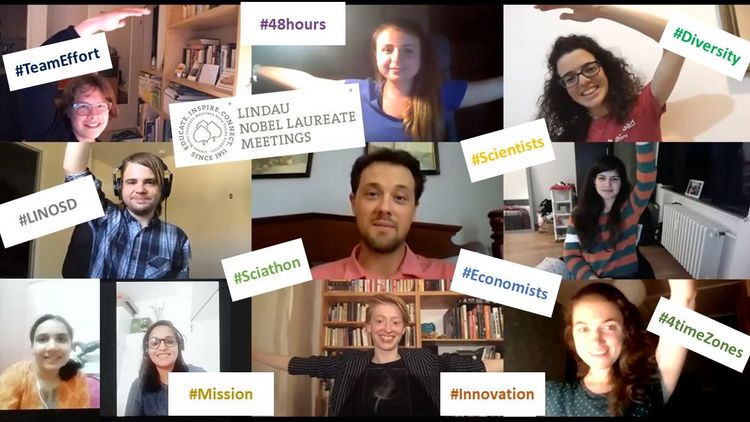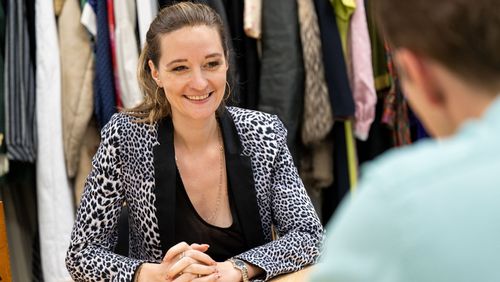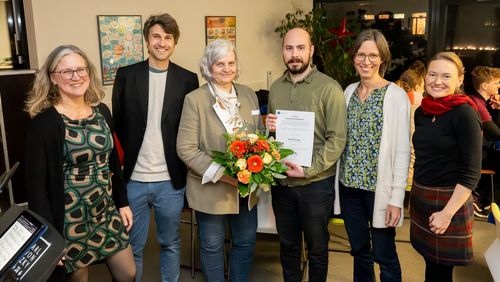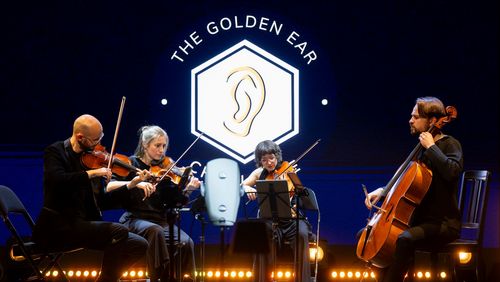Bring a project from concept to paper in just two days – in an online “Sciathon” for young scientists, Oldenburg PhD student Nora Bach took on the daunting challenge. The competition was part of an online alternative programme to the postponed 70th Lindau Nobel Laureate Meeting.
In the grips of the coronavirus pandemic, the whole world is waiting for a vaccine to stop the virus. What can governments do to create optimal conditions for the process of developing a vaccine? And how can they limit the damage caused by the pandemic? Over two days and two nights, Nora Bach, a PhD student at Oldenburg University’s Institute of Physics, worked in a team of ten young scientists from across the globe to find answers to these questions. In an online competition that ran from June 19 to 21, the group had exactly 48 hours to gather data, evaluate it and document the results.
Bach and her teammates were originally supposed to convene at the Lindau Nobel Laureate Meeting, where every summer around 30 to 40 Nobel Laureates and 600 young scientists and scholars gather for five days. Bach applied to take part back in October 2019, and received her invitation in early March. But just two weeks later, the event, which would have taken place for the 70th time this year, was cancelled due to the coronavirus pandemic. "I had already expected this, but I was optimistic that there would be an alternative programme," says Bach, who is doing her doctorate in the "Ultrafast nanoscale dynamics" research group led by Professor Sascha Schäfer. And she was right: not only was the conference itself taken online, the organisers also planned and developed a completely new event format. To give participants the opportunity to work together in a digital format, share experiences and develop new ideas in interdisciplinary teams, an "Online Sciathon" was held under the patronage of three Nobel Laureates.
Science without boundaries
The format is modelled on the better-known hackathons: competitions in which programmers solve tasks such as developing a new app within a fixed time frame. As the name suggests, the Sciathon is all about science. Forty-eight teams with ten participants per team competed in the event. The focus this year was on three current issues: the economic impact of the coronavirus pandemic (Capitalism after Corona), communication on climate change (Communicating Climate Change), and strategies for stronger networks and greater sustainability in science (Lindau Guidelines). At the "Online Science Days" virtual event which took place at the end of June in lieu of the usual meeting in Lindau in southern Germany, a 15-member jury awarded prizes to nine winners.
Not only the young scientists invited to this year's conference but also participants in previous conferences could also up for the Sciathon. Which team a participant belonged to was largely determined by personal interests. Bach's team included biologists, physicists and economists based in Germany, Switzerland, Spain, the Netherlands, Russia, the USA and India. Time zone differences posed a major challenge. To make optimal use of their time, members were assigned different sub-topics and then exchanged information at frequent intervals via video conference. While some team members worked, others took a nap - but there wasn’t much time to relax or enjoy a proper meal. "Those who had cooked their meals in advance had a clear advantage," says Bach with a laugh.
From paper to YouTube video
Bach and her teammates examined the social, economic and medical impact of the coronavirus pandemic in order to deduce policy recommendations for dealing with the crisis. They evaluated many different types of data, from the share prices of pharmaceutical companies to press releases and Google trend analyses. One conclusion they arrived at: in the race to develop a vaccine, governments should provide funding for as many companies as possible, since this is the only way to ensure that different approaches are tested and promising ones are not eliminated from the start amid fierce competition.
The team members worked on their project until the very last minute. After 48 hours, at five o’clock on the Sunday afternoon, a five-page paper and open-access web app were ready in which the young scientists presented their results. But they weren’t finished yet: they also had to produce a video by 8 o’clock on the Monday morning in which they presented their results in a way that non-scientists would find easy to understand. Working together, the team mastered this challenge too – Bach worked with other members until five o'clock in the morning, and the video was finished shortly before eight o'clock. "I’m still overwhelmed by the wonderful team spirit in our group," she comments enthusiastically.
Her group didn’t quite make it onto the winners’ rostrum, but the young scientists are not deterred. They are staying in contact and continuing work on their project with the goal of having the results published in a scientific journal. And they hope to be able to meet each other in person in 2021 – after all, their invitation to the Nobel Laureate Meeting is valid for next year too.






